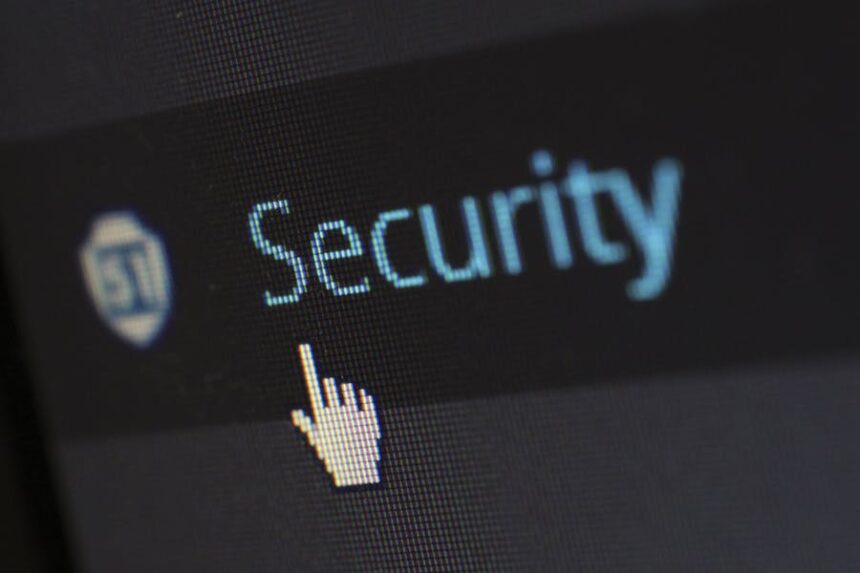Landlords are legally required to provide safety and security on their rental property. They are responsible for their tenants, and a well-chosen security system not only prevents criminal activity but also adds value to your property while building trust between tenants. Investing in the right security system can also save your property from costly damages, legal issues, and high tenant turnover. Continue reading below, as this guide will help provide insights when choosing the best system based on your property’s security needs.
Best Security Systems for Landlords: Top Features to Look For
When you are in the process of evaluating security systems for your rental property, it’s important to focus on features that provide both protection and convenience to access, both for you and your tenants. Here are some of the most valuable features to consider:
- Remote Mobile Access: Some security systems have remote monitoring through an app or web portal. This feature allows landlords to monitor vacant properties or outdoor premises, especially between tenancies.
- Environmental Sensors: Smoke, carbon monoxide, water leak, and glass-break sensors add an extra layer of protection and are often required for landlord compliance in many cities.
- Smart Locks & Keyless Entry: These smart locks usually simplify property access during tenant turnovers or maintenance calls. Providing keyless entry increases your security because it removes the risk of lost, stolen, or duplicated keys. In return, this reduces expenses connected to replacing lost keys or rekeying locks.
- Video Surveillance (CCTV): Privacy laws need to be reviewed before installing these cameras at entry points and common areas. Landlords are also required to always notify tenants where they are located, especially if it’s placed at entry points and common areas to prevent break-ins, or worse, serve as critical evidence if ever such incidents occur.
- 24/7 Professional Monitoring: This feature can provide immediate response during emergencies on your property, even if tenants are not within the vicinity. This is a cost-effective solution for landlords who live a bit far from their property.
When choosing the best security systems for landlords, it’s important to prioritize reliability, ease of use, and remote access for peace of mind.
How to Choose the Right Security System Based on Property Size and Location
Property owners need to be aware that not all rental properties need the same level of security system. Before choosing the right home security system, research your local crime rates and connect with your property manager to assess what’s most effective in your area. If you’re looking for expert advice and support, property management in Boston can help you navigate the competitive real estate market. Lastly, take into consideration the property’s size, layout, and location. Make sure to balance coverage, functionality, and cost-efficiency when deciding on the level of property security required.
Here are some examples to look into:
- Single-Family Homes: In some neighborhoods, having visible security signage can be enough to deter unwanted activity. Homeowners can try to add doorbell cameras, smart locks, and motion-activated lighting.
- Multi-Family Buildings: In shared spaces, having security cameras in common areas such as hallways and parking areas is essential. Some security systems allow multi-user access, allowing tenants to view their own units, while landlords can view everything, including common areas.
- Vacant Properties: Properties with long vacancies tend to attract break-ins since they are seen as unattended by their owners. It is suggested that owners consider adding a scheduled lighting system to create an outdoor perception that the property is occupied.
- Properties in High-Crime Areas: A more robust system may be a worthwhile investment if your property is located in a neighborhood with higher crime rates. Consider systems with 24/7 professional monitoring, smart locks with activity logs, or ones with entry sensors on all potential access points. It’s also a good option to have a backup power supply to ensure continuous protection during outages or tampering attempts.
Many states and cities have regulations that protect tenant privacy. Always check local laws regarding surveillance, since it is important to be transparent with tenants where cameras are placed.
The Benefits of Smart Security Systems for Enhancing Tenant Satisfaction and Safety
Younger renters and families have an increased expectation of living in tech-savvy homes with safety features built in. Smart security systems are now considered a selling point since they provide safety and tenant satisfaction during their lease. Here are the top reasons why tenants prefer them in a rental:
- Convenience: Features such as video doorbells and app-controlled locks allow everyday convenience, especially if the property is located in shared housing or high-traffic neighborhoods.
- Peace of Mind: Tenants feel more comfortable knowing their home is protected while they are away for work or vacation. Having this sense of security can lead them to extend their lease contract, and fewer complaints for the landlords or property managers.
- Energy Efficiency: Choose a smart security system that can also integrate with lighting and thermostats. This allows tenants to have a sense of control over their overall energy use in your rental.
For property managers, using smart home systems also helps streamline daily operations. Using these tools reduces the need for on-site visits, and setting automated alerts can prevent costly maintenance issues from escalating. This is also a great opportunity to help your property stand out and justify slightly higher rents.
Final Thoughts
Landlords investing in a reliable home security system is a proactive step to protect your property and tenants, while adding great long-term value to your investment. With a wide range of choices available now, it’s easier to find a system that fits your budget and property needs. Remember, a well-secured home benefits everyone as it helps build a more positive and trustworthy landlord-tenant relationship while reducing vacancy rates at the same time.




